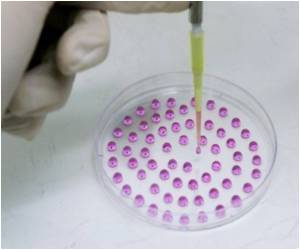A new study reveals that vitamin C may play an important role in normal development in mice.

The discovery might eventually lead to the use of vitamin C to improve results of in vitro fertilization, in which early embryos now are typically grown without the vitamin, and also to treat cancer, in which tumor cells abnormally engage or release these brakes on gene activation, the researchers said.
In the near term, stem-cell scientists may begin incorporating vitamin C more systematically into their procedures for growing the most healthy and useful stem cells, according to UCSF stem-cell scientist Miguel Ramalho-Santos, PhD, who led the study.
In fact, the unanticipated discovery emerged from an effort to compare different formulations of the growth medium, a kind of nutrient broth used to grow mouse embryonic stem cells in the lab.
Rather than building on any previous body of scientific work, the identification of the link between vitamin C and the activation of genes that should be turned on in early development was serendipitous, Ramalho-Santos said.
Working in Ramalho-Santos' lab, graduate student Kathryn Blaschke and postdoctoral fellow Kevin Ebata, PhD, were comparing different commercial growth media for mouse stem cells. The researchers began exploring how certain ingredients altered gene activity within the stem cells. Eventually they discovered that adding vitamin C led to increased activity of key enzymes that release the brakes that can prevent activation of an array of genes.
Advertisement
During the development of multicellular organisms, humans among them, different patterns of methylation arise in different cells as methyl groups are biochemically attached to DNA at specific points along the genome during successive cell divisions. Normally this gradual methylation, a key part of the developmental program, is not reversible.
Advertisement
The UCSF researchers demonstrated that Tet enzymes require vitamin C for optimal activity as they act to remove the methyl groups from the DNA and to stimulate gene activity that more faithfully mimics in cultured stem cells what occurs at early stages of development in the mouse embryo.
"Potential roles for vitamin C in the clinic - including in embryo culture media used during in vitro fertilization, which currently do not contain vitamin C, and in cancers driven by aberrant DNA methylation - deserve exploration," Ramalho-Santos, said.
The study is published in the journal Nature.
Source-ANI















